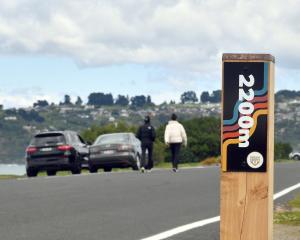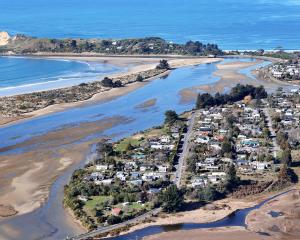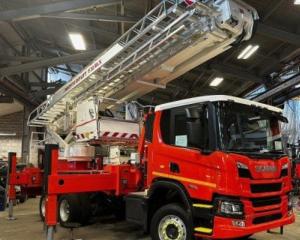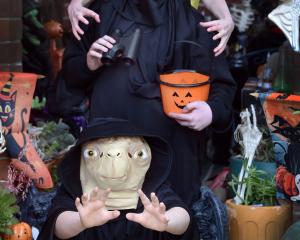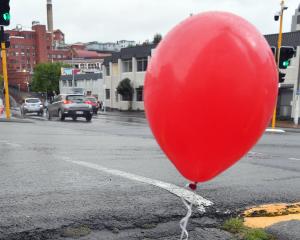Stephen Mulqueen has been making brass poppies from spent bullet casings from wars for several years, and has exhibited and given talks about them, nationally and internationally.
He said the idea to make a poppy from pieces of war waste first came to him after a 2001 visit to significant World War 1 sites in Belgium.
He had been collecting military cartridges and examples of trench art from the two world wars for some years, fascinated by both the pieces' do-it-yourself craftsmanship and ironic content.
The $400 poppies, which take about a day to make, are made in two parts.
The central stem is made from the original brass cartridge, and a butterfly-shaped brass plate forms the "petals".
He called the hybrid of the fragile poppy flower with a discarded metal fragment: "a residue of war where beauty meets terror".
His work was part of a growing body of work that investigated the image of the Flanders poppy as a worldwide emblem for commemoration, he said.
Yesterday he expanded his artistic operation into a website, which he believed offered "a connection to the collective memory of the human carnage of the wars of the 20th century".
"The brass cartridge poppy lies at the heart of current social debate, and offers a space for reflection on the causes and consequences of war as people all over the globe continue to experience it daily," he says on his site.

